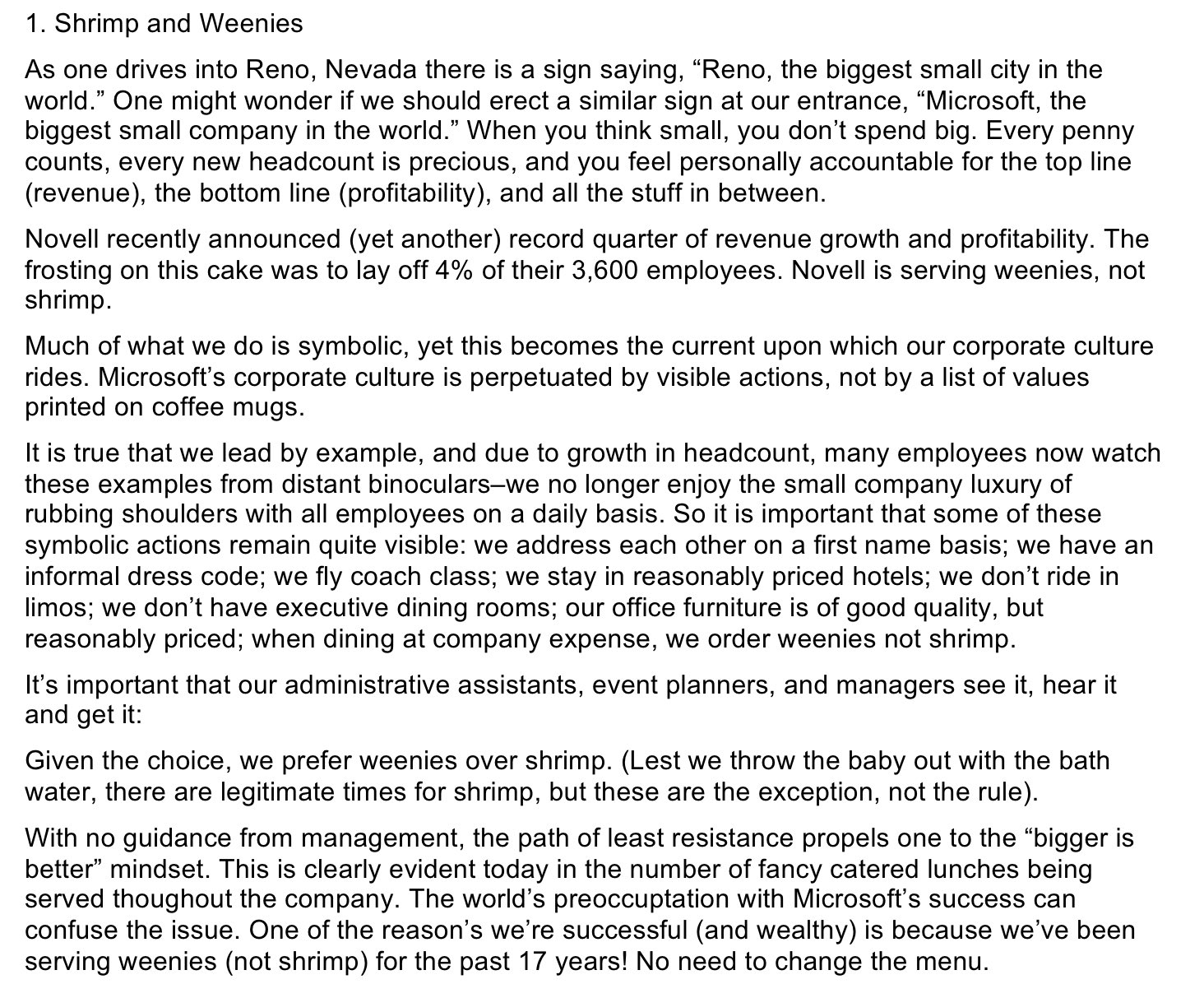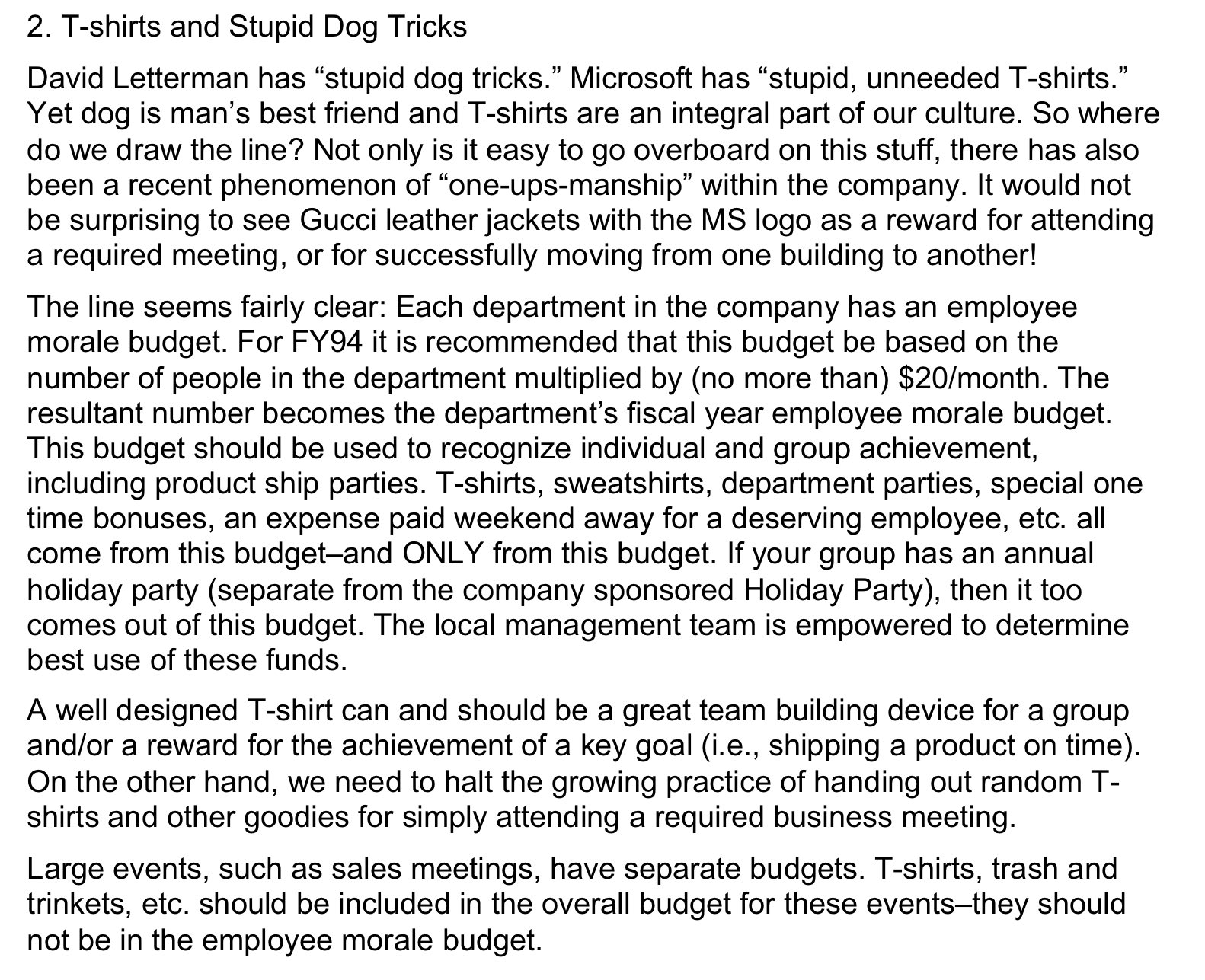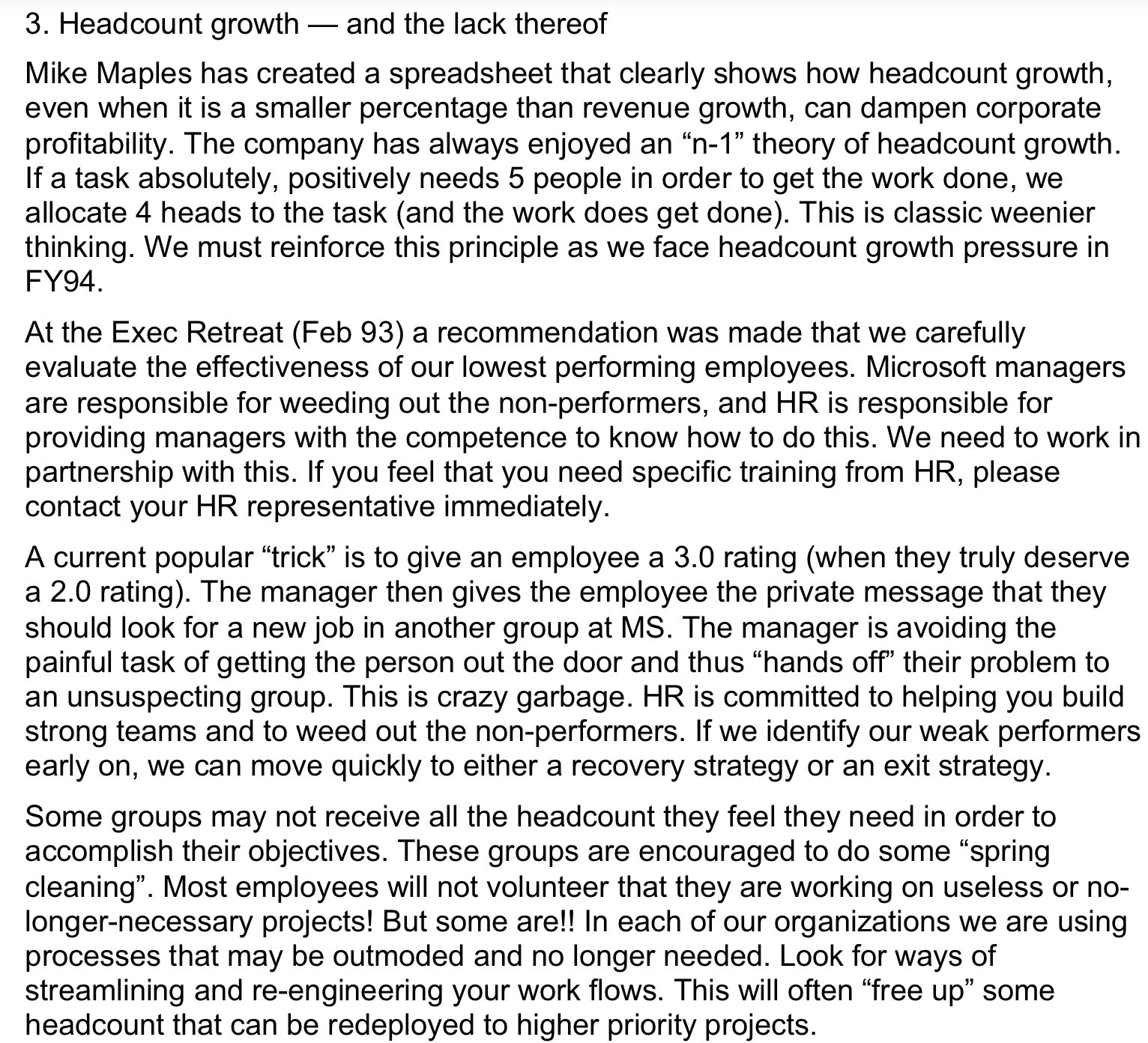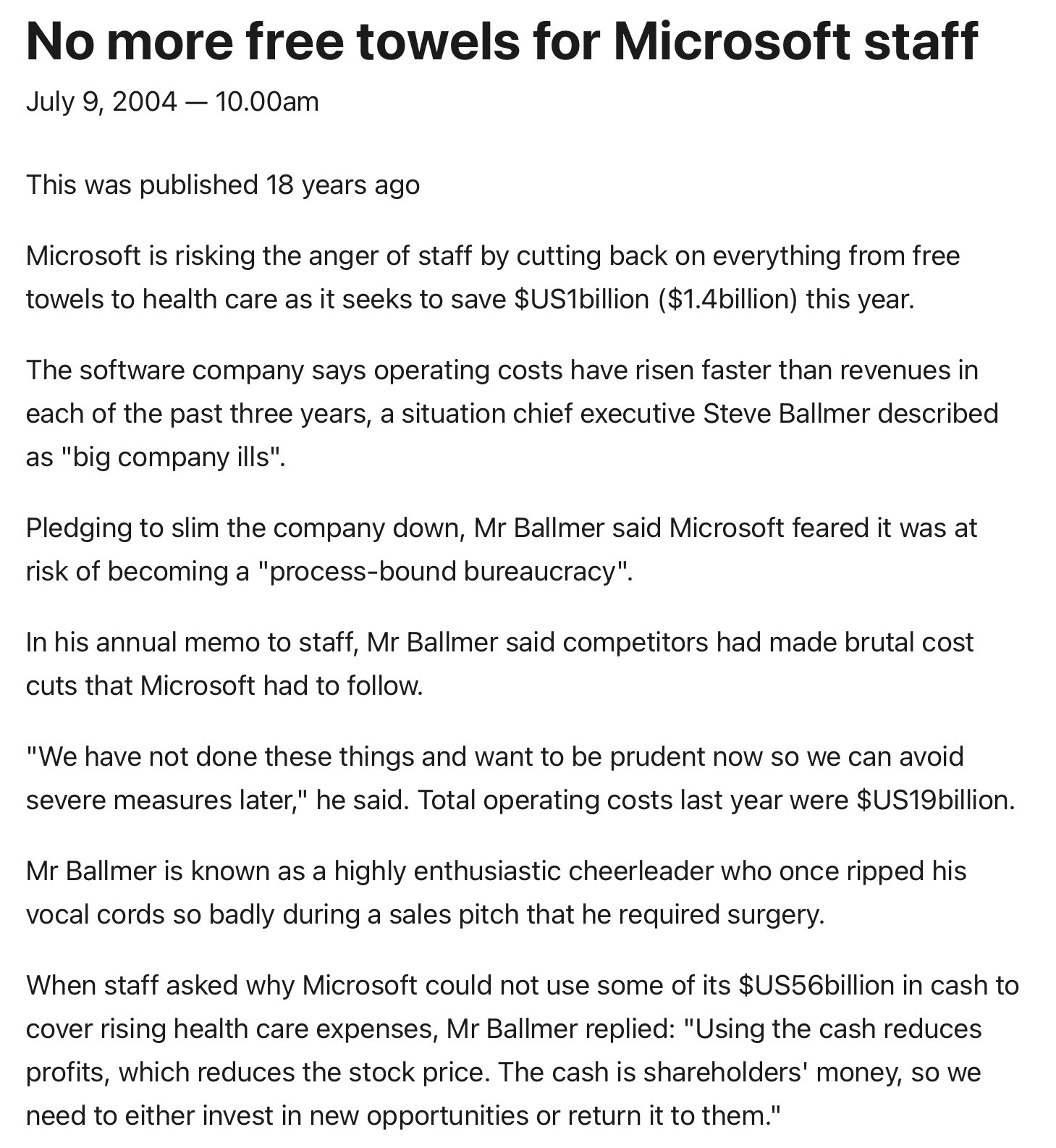Thread
One of the most famous memos in all of Microsoft history was a first memo about cost-cutting which came about in 1993 (see early 90s recession). Mike Murray, leading HR, wrote the memo "Shrimp and Weenies"—before MS, Mike was at Apple, having led OG Mac marketing. 1/ (third try)
2/ The company was going through challenges like much of the macro-economy. Only we were worried “maybe this is it? PCs are saturated”—MSFT paranoia. GDP was down. Sales were slowing. We were getting complacent.
Still, memo could have backfired. MS in 89 was a “Velvet Sweatshop”
Still, memo could have backfired. MS in 89 was a “Velvet Sweatshop”
3/ Yet the memo had not only the intended effect but it was a (re-)turning point for the company. Mike wrote about 3 challenges—things we needed to change—featuring allegories we would never forget.
4/ Shrimp and Weenies: “…we fly coach class; we stay in reasonably priced hotels; we don’t ride in limos; we don’t have executive dining rooms; our office furniture is of good quality, but reasonably priced; when dining at company expense, we order weenies not shrimp.”
5/ T-shirts and Stupid Dog Tricks “…T-shirt can and should be a great team building device for a group … (i.e., shipping a product on time). On the other hand, we need to halt the growing practice of handing out random T-shirts…for simply attending a required business meeting.
6/ Headcount Growth & Lack Thereof “The company has always enjoyed an “n-1” theory of headcount growth. If a task absolutely, positively needs 5 people in order to get the work done, we allocate 4 heads to the task (and the work does get done). This is classic weenier thinking.”
8/ In a company with private offices, casual dress (a thing), and prided itself on being modern and lean this was a big huge deal. Every company was experiencing “belt tightening” but this seemed different because we were a symbol of national success.
This could have backfired.
This could have backfired.
9/ Instead it became a cultural touchstone—much like how BillG thought of the company 15 years earlier which was to always have cash on hand to meet payroll for a year.
The idea of being “shrimpy” was a shortcut for not being aligned with the company, customer, etc.
The idea of being “shrimpy” was a shortcut for not being aligned with the company, customer, etc.
9A/ An OpEd to the weekly printed newsletter “MicroNews” a month later in support of Shrimp & Weenies going against the hold-out whiners was titled “Microsoft Did Not Promise You Club Med” and was widely posted on doors (we still had those).
10/ People started to talk about money not as their own but as shareholder and investor money.
I was reminded of my first t-shirt in 91 I made for the team which I paid for myself and like a school teacher buying supplies was just part of the job. hardcoresoftware.learningbyshipping.com/p/011-a-strategy-for-the-90s-windows
I was reminded of my first t-shirt in 91 I made for the team which I paid for myself and like a school teacher buying supplies was just part of the job. hardcoresoftware.learningbyshipping.com/p/011-a-strategy-for-the-90s-windows
11/ This didn’t last forever. As Mike warned us, being a big company is a constant fight to avoid Shrimp. In 2004 (other tough times) we famously did away with free (to use) gym towels—a favorite of joggers and bikers alike. The company practically imploded. Towels retuned in 06.
12/ The key failure was a sense of entitlement had taken over. Some companies in the news today are struggling with this reaction.
One company took a forward-looking view saying perqs and other benefits could easily be “penny wise and pound foolish”. Here’s Google’s S-1
One company took a forward-looking view saying perqs and other benefits could easily be “penny wise and pound foolish”. Here’s Google’s S-1
13/ Not to “told you so” but there is no way this was going to last. I’d been battling these benefits in recruiting for a couple of years and just “knew”.
13A/ Google is even rumored to be cutting back on PC purchases. Oh my!
Being well-known for being thoughtful (aka frugal) in this regard, do the math. $5000/year for R&D can easily be $250M dollars domestic. And what gain (esp for a cloud company!) But Sheets and Slides, yikes!
Being well-known for being thoughtful (aka frugal) in this regard, do the math. $5000/year for R&D can easily be $250M dollars domestic. And what gain (esp for a cloud company!) But Sheets and Slides, yikes!
14/ Many are using the “tech layoffs” to pile on to anti-BigTech or Silicon Valley. That would be dumb. As Mike noted, this is not unique to tech in any way. It is a product of scale.
At scale, everyone thinks some other group will make up for costs/savings. Just a fact.
At scale, everyone thinks some other group will make up for costs/savings. Just a fact.
15/ These stages of cutbacks are a natural evolution not just of tech companies but all companies. It is sad that it happens and feels like a cultural reset or “mean reversion”. It is. Scale is a challenge for every company and this is one of the steps.
PS/ Detailed view and some more story here covering this thread. finance.yahoo.com/news/microsoft-hr-boss-wrote-legendary-005135292.html







